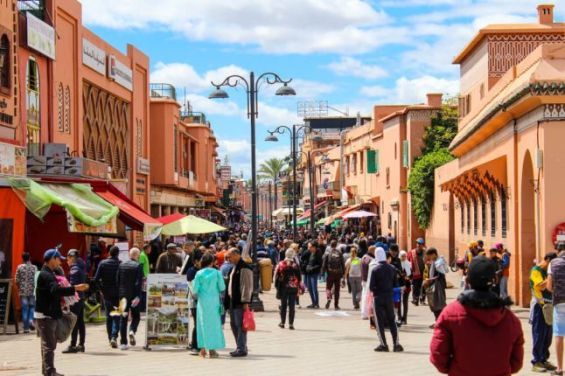Moroccan authorities are gearing up for the upcoming General Population and Housing Census (RGPH) slated for September 1-30, 2024. A crucial undertaking tasked with gathering vital demographic and social data, the process requires a dedicated workforce to ensure its accuracy and efficiency.
On Wednesday, February 7th, the High Commission for Planning (HCP) announced the opening of applications for 55,000 investigator positions, highlighting a new approach that embraces a broader pool of talent and advanced digitization.
Traditionally, data collection for the RGPH relied heavily on civil servants and retirees. This year, however, the HCP is taking a more inclusive approach, opening the door to younger generations and unemployed graduates.
Rigorous training for effective data collection
Any Moroccan citizen aged 20 or above with a minimum BAC+2 diploma (equivalent to an associate degree) can now apply through the dedicated online platform, www.candidature-recensement.ma. This marks a significant shift, offering valuable employment opportunities and skill development for qualified individuals seeking integration into the labor market, HCP human resources director Samir Issara told Yabiladi.
The selection process will be rigorous, with applications pre-screened based on eligibility criteria and regional needs. Of the initial pool, approximately 200,000 candidates will be chosen for a comprehensive training program. This three-month program, delivered remotely with the support of the prestigious Mohammed VI Polytechnic University (UM6P), will equip participants with the necessary knowledge and skills to conduct interviews and accurately record collected data. To ensure field readiness, this online training will be followed by a month-long, in-person program just before the census commences.
Recognizing the transformative power of technology, HCP head Ahmed Lahlimi Alami stressed the need of heavily integrating digital solutions into the RGPH 2024. This includes online applications, pre-selection processes, and training delivery. Importantly, digitalization also enhances transparency and traceability throughout the recruitment and training phases.
A deeper look : Tailored questionnaires and data analysis
Beyond expanding the investigator pool and utilizing technology, the 2024 census introduces another innovation: two types of questionnaires. All households will complete a short form, while a more detailed questionnaire will be administered to a targeted sample covering residents in smaller municipalities and a selection of households in larger ones. This approach allows for comprehensive data collection at the national level while capturing local and community-specific nuances. The aim is to delve deeper than past censuses, addressing vital topics like migration patterns, health concerns like the impact of COVID-19, and employment trends.
By leveraging rigorous data collection and analysis, the HCP aims to generate a rich set of indicators at national, regional, and local levels. This data will serve as a crucial foundation for informed decision-making, guiding future public policies and initiatives aimed at fostering sustainable socio-economic development.
Recognizing the significance of this undertaking, the HCP emphasizes the invaluable support it receives from national and local partners, as well as international organizations like the United Nations Population Fund (UNFPA) and the United Nations Children's Fund (UNICEF).
The 2024 RGPH represents a crucial moment for Morocco, offering a glimpse into the nation's evolving demographics and social landscape. By embracing a wider pool of talent, incorporating innovative training methods, and utilizing technology, the HCP aims to achieve an accurate and insightful census that will ultimately benefit all sectors of Moroccan society.





 chargement...
chargement...













